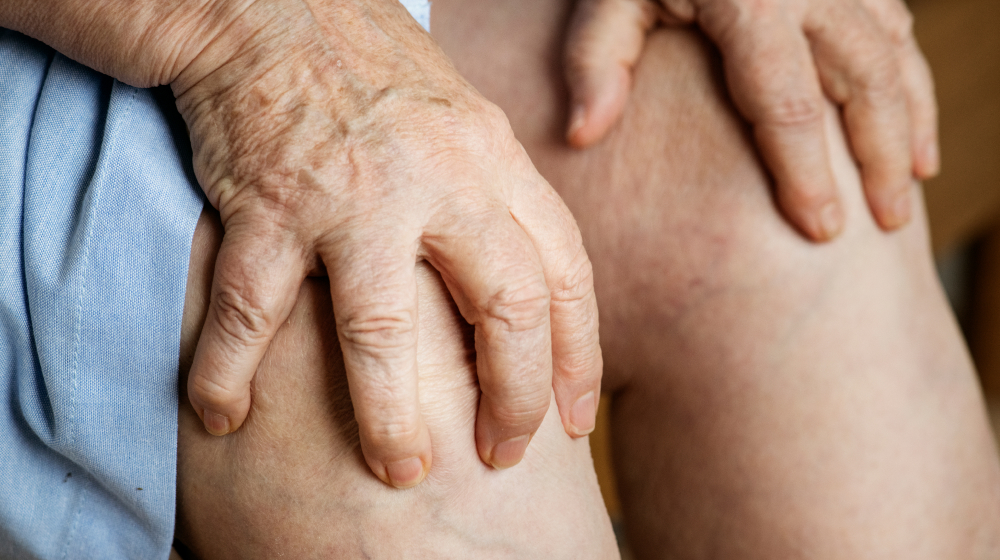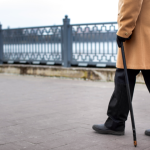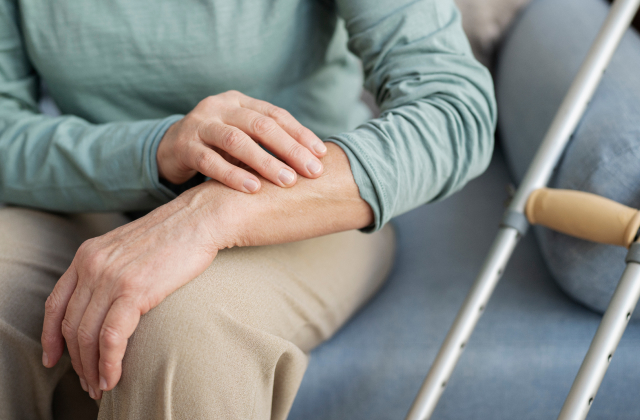Managing Arthritis among Seniors: In-home Care Strategies
Arthritis among seniors is a common problem that affects mobility, comfort, and quality of life. Let’s be honest, if you or your loved one is afflicted with arthritis it can feel overwhelming at times. The good news is that with the right care and support managing arthritis is a realistic possibility. This article will provide some feasible arthritis care for elderly strategies including pain relief, exercises and treatment that can be done at home, to enhance quality of life.
What is Arthritis and why is it an issue for seniors?
Osteoarthritis and rheumatoid arthritis are the 2 forms of arthritis which cause pain, stiffness and inflammation in the joints. Arthritis in its various forms,curtails the mobility of elderly individuals making performing daily tasks difficult. Managing arthritis for elderly individuals is not solely about relieving pain, it is about maintaining independence and quality of life.

Arthritis Pain Relief for seniors: In-home Care Strategies
Managing arthritis in seniors requires a multifaceted approach. While medication may help, there are many in-home strategies that provide a substantial amount of relief.
| Method | How It Helps |
| Heat and Cold Therapy | Decreases pain and inflammation in the joints |
| Massage Therapy | Increases circulation and relaxes tight muscles |
| Diet and Supplements | Omega-3s and Glucosamine curb inflammation |
| Mind-Body Connection | Yoga and mediation relieve stress which lessens pain |
By utilizing these simple methods, and combining those with an adequate arthritis treatment for elderly at home, it allows seniors to find relief without overly relying on medication.
Senior Home Exercises for Arthritis: Move to Improve
Exercise is a great way for seniors to manage arthritis. While it might sound like motion is contraindicated when you’re in pain, gentle movement will improve joint flexibility and decrease stiffness.
| Exercise | Benefit |
| Low-Impact Activities | Walk, swim, bike, or any other activity that increases mobility, as long as it is low impact on the joints. |
| Strength Training | Light weights or resistance bands, to strengthen the muscles around the joints. |
| Range-of-Motion Exercises | Improves joint flexibility, and reduces stiffness. |
These senior home exercises for arthritis can be performed daily and modified to a person’s ability. Simply moving whatever joints you can will have significant positive benefits.
Arthritis Treatment for Elderly at Home: Medications are Not the Only Solution When Thinking About Arthritis
In providing arthritis treatment for elderly at home, medications are a big part but they won’t solve everything. Grasping of a few different ways cope with this problem:
| Method | How It Helps |
| Physical Therapy | A therapist can provide you with exercises, that are specific to you, to improve stamina, mobility, and pain. |
| Assistive Devices | Braces that help support joints while doing activities, canes for walking, etc. |
| Pacing and Rest | Helps to prevent overdoing activity and to reflect and decrease energy and flare-ups. |
Tips for Living with Arthritis in the Elderly: Small Things Make One Hell of a Difference
Here are a few small things that can make a big difference for seniors living with arthritis:
| Tip | How It Helps |
| Use Adaptive Devices | Anything that can assist you, or make a task easier, for example jar openers or walking aids. |
| Warm Up Before Activity | Allows your joints to get ready to do some form of movement which lowers risk of injury. |
| Be Consistent | Building routines into your self-care will help you get the most value out of all the things that you do, and build long-term consistency. |
These small changes, in conjunction with adequate arthritis support in home care, will help independence and improve life for seniors with arthritis.
Enabling Seniors Living with Arthritis
Living with arthritis does not need to mean you can no longer live an active, full, and autonomous life! With the right arthritis care for elderly, they can stay active and maximize comfort and independence. At Angel Care Inc. PCA unit, we’re dedicated to providing arthritis treatment for elderly at home, enabling seniors to live a life with less pain and more mobility. By participating in senior home exercises for arthritis, utilizing assistive devices, and practicing self-care, seniors will need less medication, experience far fewer symptoms, and maintain or improve their mobility.
Let’s help our loved ones get a grip on their arthritis and live with less pain and more life, with the support of Angel Care Inc.!

With age, a person's ability to move around can be one of the hardest things to maintain. Often, mobility issues in older adults affect someone's ability to engage in daily activities and impact their quality of life, leading to a reduced sense of personal independence, limited participation, and overall well-being. Regardless of whether your mobility challenge is due to illness, injury, or a normal part of aging, finding the right solutions that maintain or restore mobility is important. At Angel Care Personal Care Assistance, we recognize how difficult it can be to manage loss of mobility in elderly individuals. With proper including strategies, physical therapy, and mobility aids, we can provide independence back to seniors that will help them live a more comfortable life in their home. Understanding Mobility Problems in The Elderly Mobility problems in older adults may have many factors that contribute to their inability to get around. Further, mobility issues can stem from both age-related changes and chronic conditions (such as arthritis or stroke), as well as general weakness. These problems may create difficulties with walking and standing and, issues with basic mobility skills associated with daily activities such as using the bathroom or getting in and out of bed. While mobility problems are a natural part of aging, recognizing mobility problems and treating them effectively may create some improved outcomes for the elderly and allow them to gain a degree of independence in their lives. Solutions for Senior Mobility Issues - Working to Restore Senior Mobility Physical Therapy for Senior Mobility Continuing to explore the best types of treatment for mobility problems, physical therapy is one of the best treatments. With physical therapy, we can devise a program of individualized exercises that can improve strength, balance, and flexibility. A physical therapist can create a tailored exercise program to address mobility, to assist with fall prevention, and to accommodate individual needs. Quote: "Physical Therapy is one of the best ways to increase the mobility and independence of your senior population when focusing on rehabilitation and prevention." -- Angel Care Inc. Top Mobility Aids for the Elderly Mobility aids are an essential component of safe mobility for many seniors! There are several types of aids available, based on how much support is needed: Canes and Walking Sticks: The best option for seniors that are still mobile, need some minimal support, but can have balance problems. Walkers: A good option for when a senior needs more assistance to walk safely. A walker provides a larger base of support. Wheelchairs and Rollators: These are for seniors that may not be able to walk long distances or stand for long periods. Stairlifts: These are an option for seniors that have weaknesses preventing them from walking in the stairs or have joint issues. When identifying the right mobility aid, you will need to assess the elderly individual's needs, as well as their lifestyle, along with the amount of support needed to be comfortable. Managing Mobility Loss in the Elderly: A Step-by-Step Method Assessment and Diagnosis Before starting any plan for improving mobility, honestly assess the senior’s lifestyle. This starts with a comprehensive assessment, including assessing the individual’s physical health, mobility restrictions, and overall lifestyle. Partnering with a medical professional or a home care provider can assist with development of a personalized plan. Creating a safe home environment At home, it is important to create a mobility friendly home environment to eliminate hazards and encourage mobility. This can include: Cleaning out walls and floors to ensure pathways are clear Installing grab bars in bathroom and stair areas Never using throw rugs, or if using non slip throw rugs anchored with velcro A designed home environment can lead to a safer and more mobility friendly space. Getting seniors to do mobility exercises at home Getting seniors to do mobility exercises at home as part of their daily life can help them keep some flexibility and strength. For example: Chair exercises – strengthening of lower body muscles in a chair. Balance exercises – practicing standing on one foot or being stable walking heel to toe. Stretching - flexibility in legs, arms and torso. "Exercise is the best and kindest way to maintain and even improve mobility in seniors: even basic chair exercises will go a long way to getting seniors to be more independently mobile." - Angel Care Inc. Home Care for Seniors with Mobility Issues When mobility is drastically reduced to the point of being home bound it is critical to seek some home care services for assistance and support. At Angel Care Inc. we work with families to create personalized in home care to support them with all activities of daily living to allow seniors to maintain as much independence as able. What is included in home care for mobility issues? Personal Care Assistance: Assistance with bathing, dressing and grooming. Mobility Assistance: Help with getting in and out of bed, walking, and using mobility aids. Medication Management: Making certain seniors take prescription meds on time or pain relievers needed for mobility issues. Companionship: Helping minimize loneliness by stimulating interaction and mental well-being. The Caregiver's Role in Supporting Elderly Mobility Family caregivers are vitally important in the support of seniors experiencing mobility problems. They not only help seniors with physically difficult tasks such as getting out of a chair, but help seniors with emotional support, motivation and the ability for seniors to stay physically and actively engaged in their own homes. Quote: "A caring caregiver is essential for aging adults with mobility issues because they help them live with dignity and independence." – Angel Care Inc. Key Tips for Families Supporting Aging Adults with Mobility Issues If you are a family member or loved one of a senior with mobility issues, here are a few helpful tips for you when caring for a senior: Encourage Regular Movement: Don't become sedentary - just taking a few steps will keep the from deteriorating. Use Mobility Aids: Help your loved one choose the best mobility aids for their individual needs. Identify and Manage Health Conditions: Chronic conditions like arthritis or diabetes can compound mobility limitations so those need to be addressed with a health care provider. Maintain a non-threatening environment: be supportive and calm, demonstrate reassurance and ensure the home allows easy access to safe mobility. Supporting Seniors in Mobility Issues Mobility issues in seniors can be challenging; however there are ways to increase their quality of life. A great deal can be accomplished from physical therapy and mobility aids, home care and appropriate exercises, but addressing mobility challenges is a holistic approach requiring timed compassion, knowledge and the best supports. Angel Care Inc. NY can provide the individual care seniors need to manage their mobility issues. If you or your loved one is experiencing mobility loss, please consider contacting us, we would love to share our guidance, professional care and support!

We know how stressful it can be to choose the right care for your loved ones in regards to the process of getting home care services. Whether you are getting ready for your own Consultation or helping to get a home care consult for a senior family member, we think it is important to know how to proceed with the process. A well-organized consult provides clarity and will allow you to choose an ideal home care provider for the situation. In this article, after discussing what a home care consult entails, we will explain everything you need to know to be prepared for your home care consult, whether you've agreed to your own consult or you're helping a senior with one. From questions to ask, to preparing seniors for home care services, we've got you covered. Let's try to continue to simplify this process and keep your consult smooth, effortless and meet your needs EVERY TIME! What to Expect during a Home Care Consultation The first step in the consultation process is simply knowing what to expect in a home care consult for seniors. It is important to understand what to expect from the consult process because it will allow you to actively participate in the conversation, and not feel caught off guard for unexpected surprises. Typically in a home care consult process the care provider will assess: Assess Needs: The care provider will ask questions in order to assess the actual care needs of the individual requiring home care. This may include a variety of physical, mental and emotional needs. Explanation of Services: A discussion of services available to meet the care needs and a good care provider will assess the families and/or caregivers ability to manage. Establish Schedule and Costs: A discussion of a schedule looks like, medication management, daily living activities and will define what is considered non-routine listed in the care plan. A good provider will have available price discussion in an "of the shelf list format with costs", or at minimum a defined format in the consultation notes. Establish In-home visit: An agreement to arrange time and day(s) to look at the home, assess the environment, discuss with family/caregivers how to promote dignity and independence of the individual requiring care. Discuss Compatibility and Concerns: Most importantly to assess compatibility in caring for the individual requiring care, discuss any concern and establish process for concerns that may arise if you engage in a relationship with the care provider. Individualized Care Plan: Following the assessment, an individualized care plan will be presented. This may include assistance with daily activities, medical care, personal hygiene and care, as well as companionship and emotional care. Managing Costs and Insurance: Being familiar with how services are billed, which insurance is accepted, and which options for coverage is probably the most important part of the consultation. Caregiver Compatibility: There will be an extensive discussion about the necessary attributes and qualifications of a caregiver. It is important to have a caregiver who can fulfill the specific need for the client. Preparing for Home Care Consultation: What You Should Do There are several steps you can take to prepare for the consultation. Preparation helps to make the process easier and helps ensure nothing is forgotten. Below is a checklist that may help with your home care consultation. Assessing the Specific Needs : Does your loved one have difficulty with their mobility, chronic illnesses, memory issues or other conditions? Is your loved one in need of assistance with daily living skills such as bathing, dressing or meal preparation? Does your loved one need monitoring, medical care or physical therapy? Organize Important Information : Health background information, any diagnosis and medical history. Medications, (what medication, dosage), and any medical equipment that is currently being used. Insurance information, as what is being funded will determine how to proceed. Have Your Questions Prepared: Asking the right questions will help you understand the services available and whether or not they are suitable. Some important questions: What are the qualifications of the caregivers? How will caregivers be assigned, or can we request a caregiver? What will the process be if we need to change caregivers? How will you manage emergencies? What is involved in the care plan? What will not be involved? How do you monitor and evaluate the quality of care? Top Tips for Home Care Consultation: Things to Consider Choosing a home care provider is a challenging decision and getting this right is essential for your loved one to receive quality care. Here are some of the top tips for home care consultation: Understand Types of Care: The home care can be divided into different categories such as: Personal Care: Help with activities of daily living (ADLs) such as bathing, grooming, and dressing. Companionship Care: Non-medical care where the service is for social interaction and emotional support. Nursing Care: More specialized care for medical needs in the home such as wound care, medication administration, and physical therapy. Make Sure There is Flexibility: A good home care provider will provide flexibility in hours, services, and adjusting care as needs change over time. Evaluate Communication: You will want to ensure open and honest communication among you, the caregiver, and the home care agency. You want to make sure that it is easy to ask questions and receive communication regarding your loved one's care in an appropriate and timely matter. Check Credentials: Always ask about the caregiver's qualifications and experience. It is important to ensure that the person providing care is trained and qualified. Trial Period: Some home care agencies provide a trial period that allows you to try their services before committing to long term care. These trial periods can be a great opportunity to assess compatibility and quality of care. Preparing Seniors for Home Care Services: How to Make the Transition Easier Transitioning seniors into home care services can prove challenging, as change can be overwhelming, and especially when it is your loved one, who would like to be independent, is with hesitation or concerns. Here are a few tips in preparing the Seniors for home care services. Talk About It: Sit down with your loved one and discuss their needs and acknowledge the changes coming ahead along with discussing the benefits of having professional care. This should be a gentle conversation allowing your loved one a chance to express their feelings. Involve your Loved One: Involve their senior in the selection of the caregiver. This reduces anxiety and underpins a collaborative process. Emphasize Independence: Remind seniors that the goal of home care is to provide them with independence while providing appropriate support. Ease in: Start slowly with a part-time caregiver or an hour or two of care a week. Then gradually increase hours based on the needs of the senior. This gives your senior a chance to adjust to the changes and move at their own pace. Choosing a Home Care Provider: What to Look for Choosing a home care provider can be a daunting task. Keeping the following in mind may help you make your decision. Experience and Reputation: Choose a provider who has a well known reputation with years of experience in the type of care needed by your loved one. For example, Angel Care Inc. NY has years of experience providing eldercare. Personalization: Every good provider of elder care may agree to a degree of flexibility of the hours they operate. The very best providers meet with you to create a care plan that meets all the needs of your loved one. Availability and Flexibility: Find a provider who provides flexibility in hours of operation and can be available in an emergency if needed. Support Services: Choose a provider that offers family support too! Not only caregiver consultations, proper and ongoing assessment, and family support, you should expect open communication too. Conclusion: Selecting The Right Home Care Provider with Confidence Planning for a home care consultation does not have to be anxiety provoking. When you know what to expect, ask the right questions to stay informed, and are prepared to the best of your ability, you can make informed choices, ultimately improving the quality of life for your loved one. Angel Care Inc. NY values families having assistance navigating home care complexities with personalized services that enhance comfort and well-being. Whether it be a plan to assist you with elderly care consultation tips to advice on the best care for your family, we want to help you as needed.



